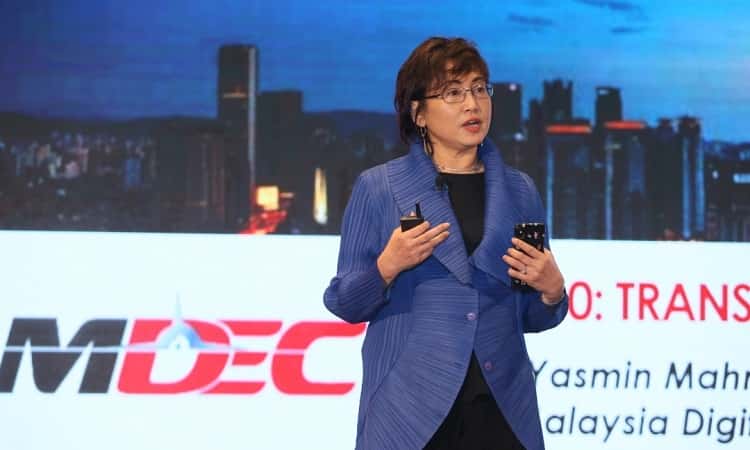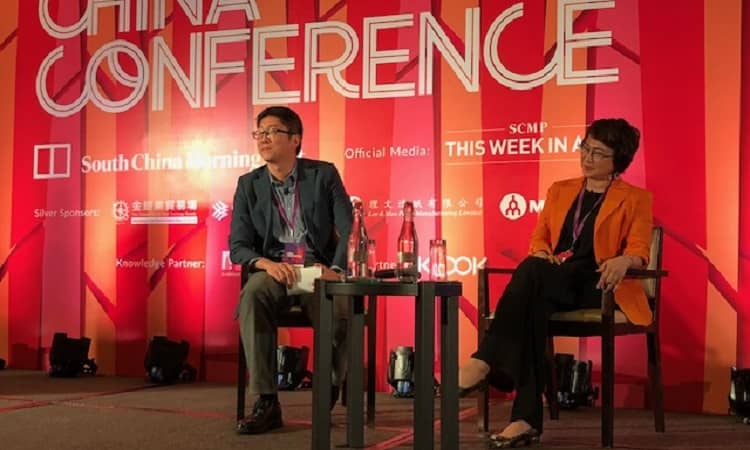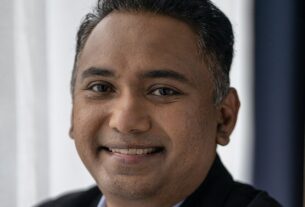Malaysia Digital Economy Corporation (MDEC) CEO Yasmin Mahmood is positive that the widespread adoption of artificial intelligence (AI) will bring about a net positive impact.
“I’m a very optimistic person; but also, if you look at previous revolutions of the past, when horse carriages were overtaken by cars, for instance, it created a whole new industry. Car manufacturers directly, but also in terms of roads that were built, new property developments that were created, and we became more productive, more inventive, and our lives were eventually made much better as a result of that completely disruptive revolution,” said Yasmin.
Yasmin was recently listed among the world’s 100 most influential people in digital government by Apolitical, a UK-based global network for government which focuses on helping public servants find the ideas, people and partners they need to solve the hardest challenges facing the societies.
She cautions, however, that the interim period could be painful. “The Great Depression actually started from the fact that people who were owning horse stables could not pay their loans, and then the whole banking system came down.”
According to Yasmin, it is predicted that up to 54% of current jobs will be made redundant by 2030, as a result of AI adoption; conversely, it is also predicted that 400 million to 800 million jobs would be created. “So at what end of the stick are we going to be? Are we going to be at the net negative or net positive? Depends on how we pivot, right?”
Yasmin is concerned about the rate of AI adoption in Asia, including Malaysia, due to the resistance of adopting technology in general. “Recently, I was in a meeting with a Malaysian company who’s one of the top names in the world when it comes to providing drone technology. In less than 3 years they were in 20 countries, but they have more business in Europe and in Australia than in Asia.”
She reiterated that while companies in Europe are willing to test out innovations and American companies are positively enthused, Asian companies are far more risk-averse towards the adoption of anything that’s cutting-edge.
There are other areas that need to be considered, such as talent development. “How we approach re-skilling of older workers who may be affected by technological disruption is something really very crucial. Or take something as fundamental as connectivity in Malaysia. The Minister of Multimedia and Communication has come out very strongly to say that Internet connectivity is the fuel of this industry; like electricity during the Industrial Age, and he has made it clear that it is a basic human right, and he is looking into making this into a constitutional reform.”
 Yasmin was speaking at the China Conference organised by the South China Morning Post (SCMP) recently held here in Kuala Lumpur. Hosting the session with her was renowned SCMP technology editor Chua Kong Ho (pic).
Yasmin was speaking at the China Conference organised by the South China Morning Post (SCMP) recently held here in Kuala Lumpur. Hosting the session with her was renowned SCMP technology editor Chua Kong Ho (pic).
Yasmin believes that in terms of systemic and structural changes, everything begins and ends with education.
“When I say education, I mean what we do with our children in their growing years. You look at K-12, for instance, that is the most impressionable stage that a child is at. The basic skills of reading, writing, and maths; are those skills the fundamental skills of the future? Is there a relevance towards teaching a 14-year-old European Renaissance? Is that knowledge what is needed, or is it about the thinking skills? So there is a lot of discussion right now around how you reform education for this new world.”
According to Yasmin, the current consensus revolves around two aspects.
“The first is about teaching kids to think; it’s about Higher-Order Thinking Skills or problem-solving skills.
“If we teach kids how to solve problems, and how to be creative – how to be passionate about – solving problems, that would be a big bet that is in the right direction. The other part is about exposing kids – and everybody, in fact – to programming or coding. This teaches people to look into the problem and create the algorithms to solve it. And what it does is it gives this whole concept of thinking skills and apply it to today. Things like algorithms, sequencing, and debugging; those are skills that are still relevant until today.”
Hence, MDEC has been involved in creating the MyDigitalMaker (#mydigitalmaker) movement. “This is a huge movement; huge from an importance perspective, and also huge because it’s got 300,000 kids actively participating. It is a collaboration with the schools; coding is actually a policy in Malaysia that’s embedded in the school curriculum.”
In universities, MDEC is working to bring curricula that are more relevant. “That is also a challenge, because things are actually changing so fast, and what can you do about rapid accreditation? If it takes 1 year to accredit a course, it’s going to be too late in our world.”
Yasmin underscores the importance of the young in ensuring that Malaysia is a beneficiary of the AI revolution.
“They’re the ones who will be leading the world when the time comes. The young are the ones with the right; they are the digital natives, they are so comfortable with this. How do we make them to not just be consuming, but they have to be producing? How do we make them always be ahead of the curve, as opposed to behind the curve? It will be the young who will actually do this.”
MDEC is working towards bringing in AI-relevant specialists and companies into the country.
“We have a company from Denmark, for instance, that has come into Malaysia because of the fact that in Malaysia, we have the environment that you can test their solutions. If you think about problems that need to be solved in Malaysia, we have the plantation industry, the manufacturing industry; we even have congested cities with sprawling rural areas. So we are positioning Malaysia as a testbed for emerging markets.”





